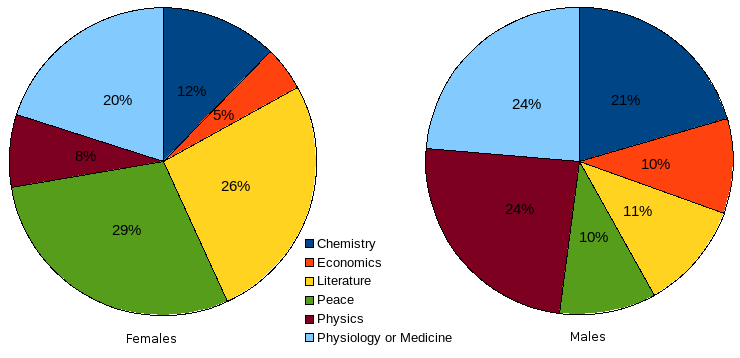areppim: information, pure and simple

The breakdown of Nobel prize wins by gender and by category suggests that women are deemed better suited for "soft" and "humane" endeavors, such as literature and peace, while males are considered more gifted for the "hard", "no-nonsense" scientific work, such as physics or chemistry. Indeed, 29% of all Nobel awards received by women were for peace (10% for males) and 27% for literature (10% for males). As for men, the highest percents were in physics and physiology, with 24% of all male-awarded Nobel prizes in each discipline, followed by chemistry with 21%.
The question is how should these ratios be interpreted? Are they a reliable indicator of intellectual ability, or rather a mere sociological indicator of a male-centered bias? The answer would require further investigation, but asking it is already the beginning of an answer.
| Nobel Prize | Female | Male | ||
|---|---|---|---|---|
| Number | Female % of Total | Number | Male % of Total | |
| Chemistry | 8 | 12.1% | 189 | 20.7% |
| Economics | 3 | 4.5% | 93 | 10.2% |
| Literature | 18 | 27.3% | 103 | 11.3% |
| Peace | 19 | 28.8% | 92 | 10.1% |
| Physics | 5 | 7.6% | 222 | 24.3% |
| Physiology or Medicine | 13 | 19.7% | 216 | 23.6% |
| Total | 66 | 100.0% | 915 | 100.0% |
Sources: see Nobelprize